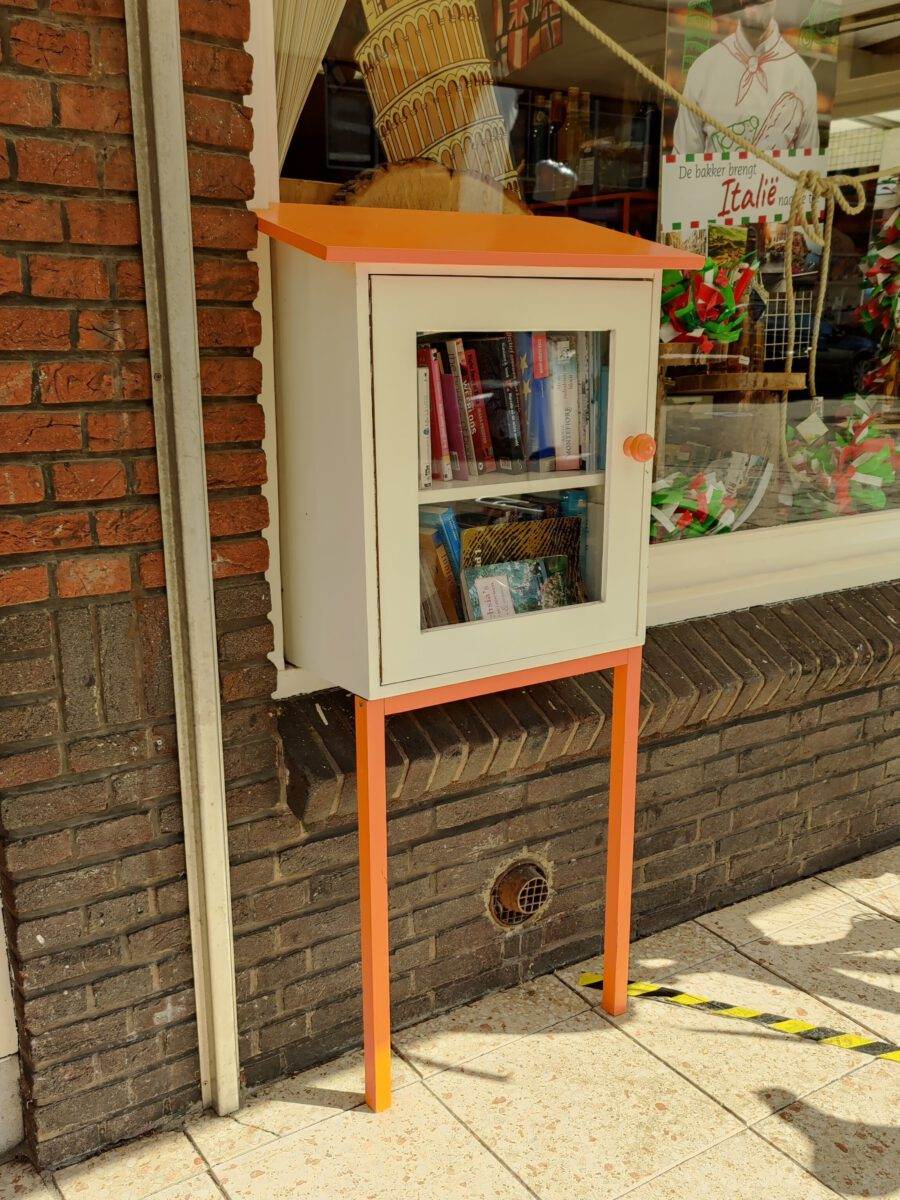Take a book, leave a book! Whilst the “little free library” tradition originated in the US, the so-called minibiebs have also grown popular in the Netherlands. Here’s the ins and outs of the cute sustainable practice.
Perhaps you have seen these tiny house-like boxes for books on your neighbour’s lawn, by your local bakery, or at the city park? Book swapping is a popular practice in the Netherlands and follows a very simple concept.
READ MORE | 8 books about the Netherlands you need to read
Take a book, leave a book
A minibieb (short for minibibliotheek) is exactly what it sounds like: A mini-library. But even if you’re not a bibliophile who gets excited by the slightest mention of books (fair enough!), we’re sure the “take a book, leave a book” concept offers something for everyone.
Book swapping follows the principle of gratis lenen en ruilen (free borrowing and exchanging). This usually means that you can take any book from the minibieb that you wish and swap it out with another book (we know you have one collecting dust somewhere 😉).
If you’re not crazy about having to part with any of your books, you can also borrow a book from the minibieb and simply return it again for free once you’re done reading. Leuk!
Did you say gratis books? Yes please!
As opposed to Dutch city libraries where you pay for a bibliotheekpas (library card), these small neighbourhood libraries are completely free. The idea is that everyone should have access to books, without any financial barriers.
Just keep in mind that the selection at a minibieb is very limited. If one of your neighbours is crazy about the impacts of degree orientation on dykes in the Netherlands, you might have to hope for some crisp pages from passersby with more interesting reading habits 😆. Another added bonus is that, rather than continuously feeding into a consumerist cycle, book swapping is a relatively sustainable practice. Saving money and the planet? Heck yeah!
A community practice
While we’re on the topic of wholesomeness, minibiebs are also a fantastic way to create a community feeling. You can get an insight into what your neighbours enjoy reading and even expand your own horizon.

Language is of course one thing you have to keep in mind if you don’t speak Dutch. However, if you live in a neighbourhood with lots of internationals then you won’t have a problem finding English language books.
You could also consider picking up a book in Dutch and start practising! 🤓
READ MORE | 7 ways to learn Dutch fast and easy: our best tips to learn Nederlands in life
In family areas or by schools, there will most likely be a selection of children’s books. If you are specifically on the search for something for small readers you can also seek out a KinderzwerfboekStation, which is essentially a kid’s edition of the minibieb.
How to find a minibieb near you
Ready to start book swapping? There’s a whole website dedicated to neighbourhood libraries in the Netherlands where you can find a cute minibieb close to your home!
Want one right outside your front door? Why not start your own?! All you need is a waterproof cabinet, dollhouse, or any other kind of box that can keep the books safe and, of course, books! Whatever you choose, make sure that it allows for some ventilation to keep the books in a good shape.
After you have your own minibieb all set up, you can register it so that others can find it!
Do you make use of the Dutch minibiebs? Any other tips for finding cheap books? Tell us in the comments below!
Feature Image: FaceMePLS/Wikimedia Commons/CC2.0



